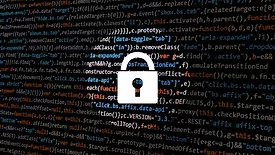Home » zero trust
Articles Tagged with ''zero trust''
5 Minutes With
5 minutes with Duncan Greatwood — Securing remote access in critical infrastructure
February 7, 2023
Sign-up to receive top management & result-driven techniques in the industry.
Join over 20,000+ industry leaders who receive our premium content.
SIGN UP TODAY!Copyright ©2026. All Rights Reserved BNP Media.
Design, CMS, Hosting & Web Development :: ePublishing













